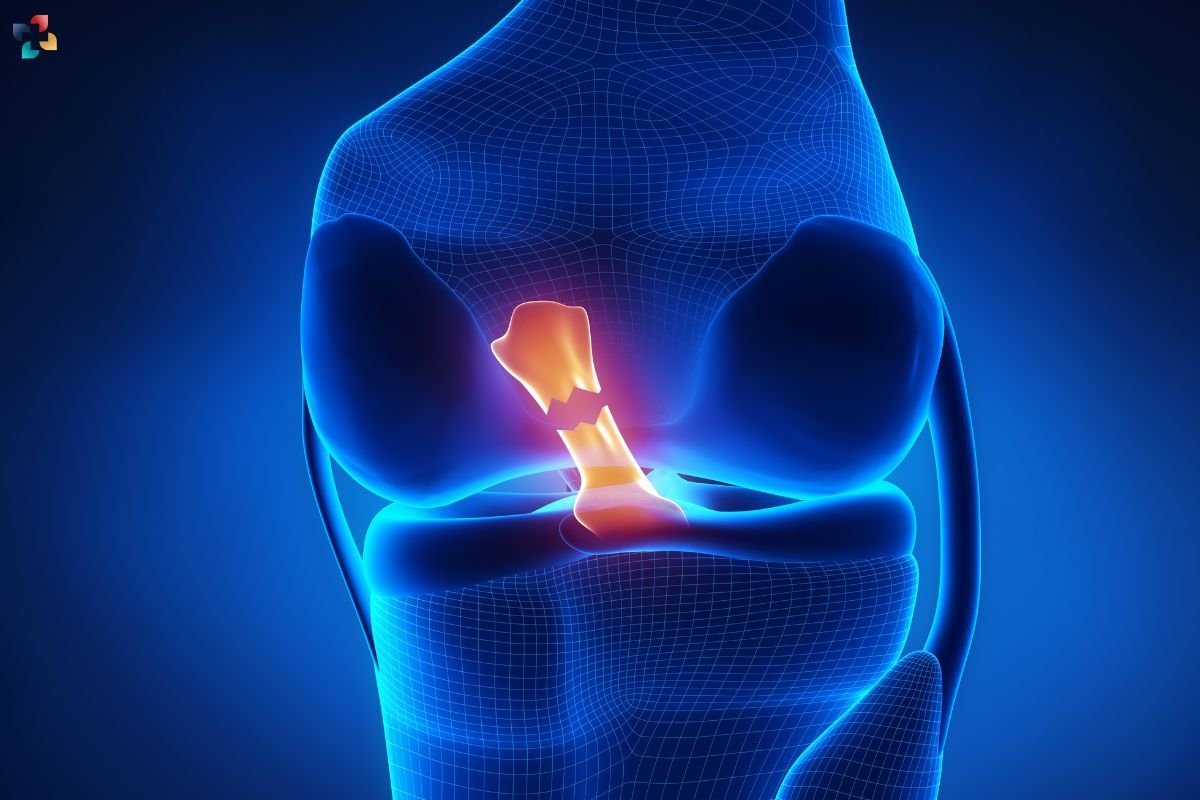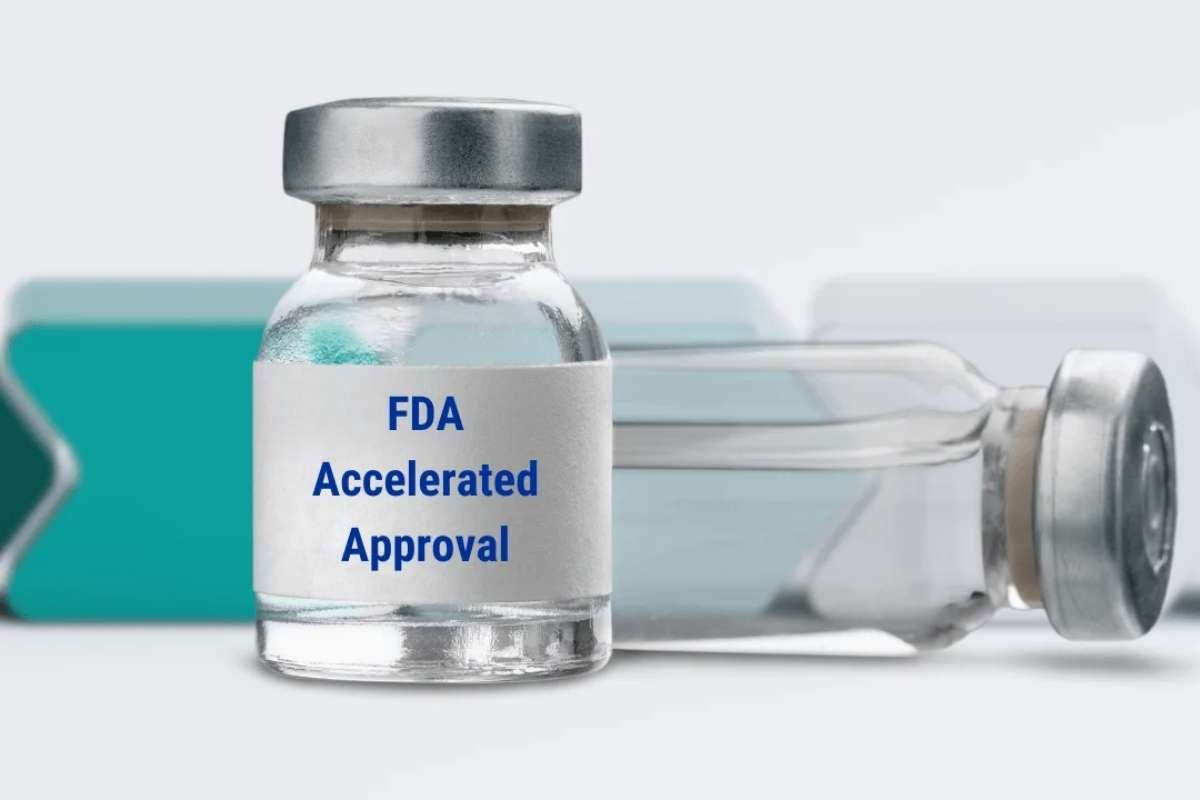A meniscus tear is a common knee injury, especially among athletes and active individuals. The meniscus, a C-shaped cartilage in the knee, acts as a cushion and stabilizer. When torn, it can cause pain, swelling, and restricted movement. Proper rehabilitation is crucial for a successful recovery, and exercises play a key role in this process. This article will guide you through 20 essential exercises for meniscus tear rehab, designed to restore strength, flexibility, and functionality to your knee.
Understanding Meniscus Tears
Before diving into specific exercises, it’s important to understand what a meniscus tear is and why rehab is crucial. The meniscus can be torn due to sudden twists, high-impact activities, or degenerative changes over time. Symptoms of a meniscus tear include:
- Pain, especially along the joint line
- Swelling and stiffness
- Limited range of motion
- A feeling of instability or catching in the knee
Rehabilitation for a meniscus tear focuses on reducing pain, improving mobility, and strengthening the muscles around the knee. The right exercises can help you recover faster and prevent future injuries.
The Importance of Rehab
Meniscus tear rehab involves more than just resting the injured knee. While rest is crucial in the early stages, targeted exercises help accelerate the healing process and ensure a full recovery. Exercises for meniscus tear rehab aim to:
- Reduce pain and swelling
- Restore range of motion
- Strengthen the muscles around the knee
- Improve balance and stability
20 Exercises for Meniscus Tear Rehab:
1. Quadriceps Sets
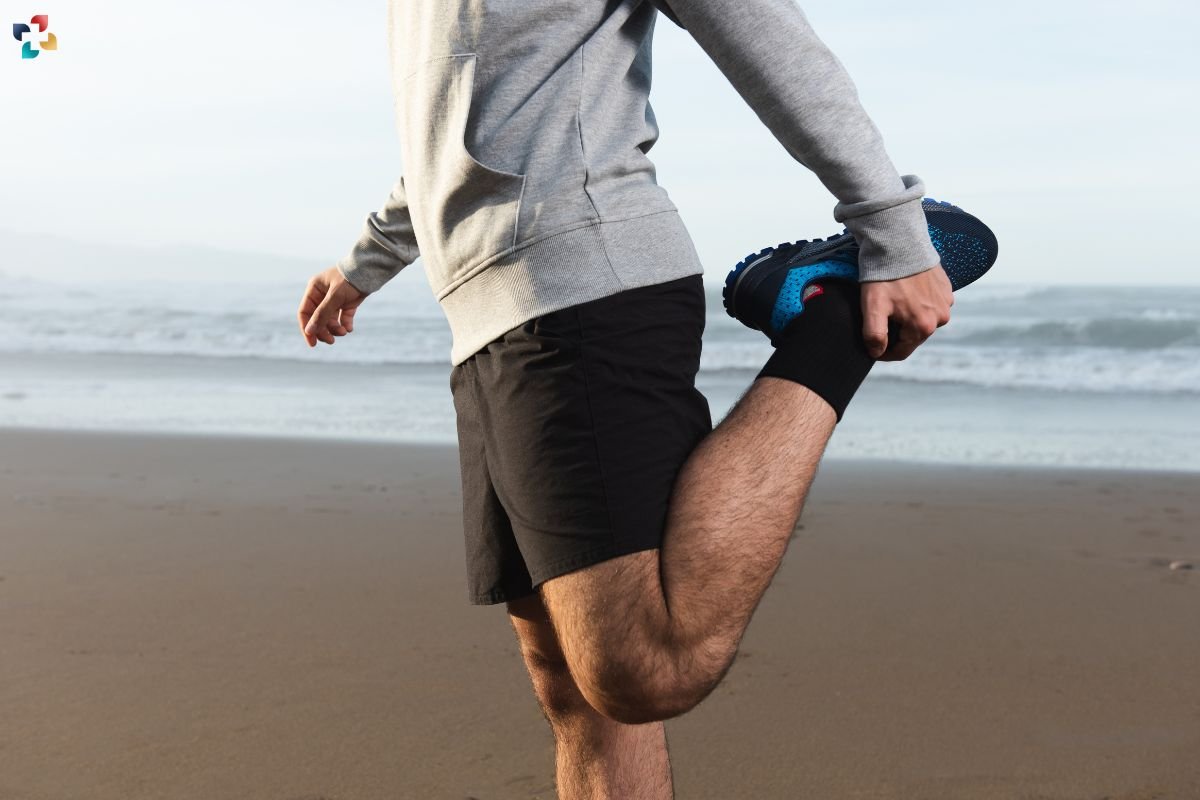
Quadriceps sets are fundamental exercises in meniscus tear rehab. They help strengthen the quadriceps muscle without putting undue stress on the knee joint.
How to Do It:
- Sit with your legs extended straight in front of you.
- Tighten the quadriceps muscle at the front of your thigh.
- Hold for 5-10 seconds.
- Release and relax for 5 seconds.
- Repeat 10-15 times.
2. Hamstring Curls
Hamstring curls strengthen the back of the thigh and support knee stability.
How to Do It:
- Lie on your stomach with your legs extended.
- Bend your knee to bring your heel toward your buttocks.
- Hold for 5 seconds and then slowly lower your leg.
- Repeat 10-15 times on each leg.
3. Straight Leg Raises
Straight leg raises are effective for strengthening the quadriceps and hip flexors without bending the knee.
How to Do It:
- Lie on your back with one knee bent and the other leg straight.
- Lift the straight leg to the height of the bent knee.
- Hold for 5 seconds and then lower slowly.
- Repeat 10-15 times on each leg.
4. Bridging
Bridging exercises strengthen the glutes, hamstrings, and lower back, which are essential for knee support.
How to Do It:
- Lie on your back with your knees bent and feet flat on the floor.
- Lift your hips off the ground, creating a straight line from your shoulders to your knees.
- Hold for 5 seconds and then lower slowly.
- Repeat 10-15 times.
5. Heel Slides
Heel slides help improve knee flexibility and range of motion.
How to Do It:
- Lie on your back with your legs extended.
- Slide your heel toward your buttocks as far as possible without pain.
- Hold for a few seconds and then slide your heel back.
- Repeat 10-15 times.
6. Step-Ups
Step-ups are excellent for strengthening the quadriceps and improving knee function.
How to Do It:
- Stand in front of a step or platform.
- Step up with one foot and then bring the other foot up.
- Step down with one foot and then the other.
- Repeat 10-15 times, alternating the leading foot.
7. Wall Sits
Wall sits are great for building endurance in the quadriceps and hamstrings.
How to Do It:
- Stand with your back against a wall and slide down until your knees are at a 90-degree angle.
- Hold this position for 10-30 seconds.
- Gradually increase the hold time as your strength improves.
8. Clamshells
Clamshells target the hip abductors, which help stabilize the knee.
How to Do It:
- Lie on your side with your knees bent and feet together.
- Lift your top knee while keeping your feet together.
- Hold for a few seconds and then lower slowly.
- Repeat 10-15 times on each side.
9. Bicycle Exercise
The bicycle exercise is a low-impact way to improve knee flexibility and strength.
How to Do It:
- Lie on your back with your legs elevated.
- Move your legs in a pedaling motion as if riding a bicycle.
- Continue for 1-2 minutes.
10. Standing Calf Raises
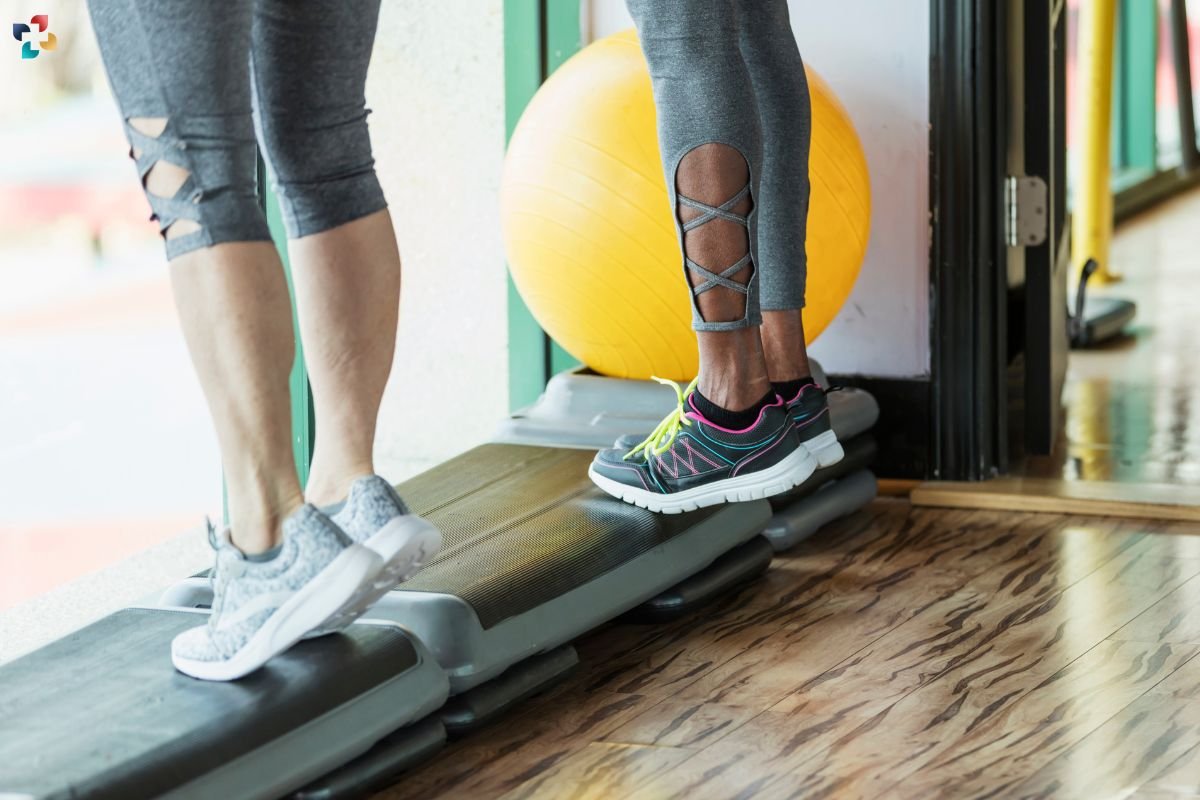
Calf raises help strengthen the calf muscles and improve overall leg strength.
How to Do It:
- Stand with your feet shoulder-width apart.
- Slowly lift your heels off the ground and rise onto your toes.
- Lower your heels back down.
- Repeat 10-15 times.
11. Side-Lying Leg Lifts
Side-lying leg lifts strengthen the hip abductors and improve knee stability.
How to Do It:
- Lie on your side with your legs straight.
- Lift your top leg to about 45 degrees.
- Hold for a few seconds and then lower slowly.
- Repeat 10-15 times on each side.
12. Seated Leg Press
The seated leg press is useful for strengthening the quadriceps and hamstrings.
How to Do It:
- Sit on a leg press machine with your feet on the platform.
- Push the platform away using your legs.
- Slowly return to the starting position.
- Repeat 10-15 times.
13. Resistance Band Knee Extension
This exercise strengthens the quadriceps and improves knee function.
How to Do It:
- Sit in a chair with a resistance band tied around your ankles.
- Extend your leg straight out.
- Slowly return to the starting position.
- Repeat 10-15 times on each leg.
14. Hip Flexor Stretch
The hip flexor stretch helps improve flexibility and reduces tightness around the knee.
How to Do It:
- Kneel on one knee with the other foot in front.
- Push your hips forward gently.
- Hold for 20-30 seconds and then switch legs.
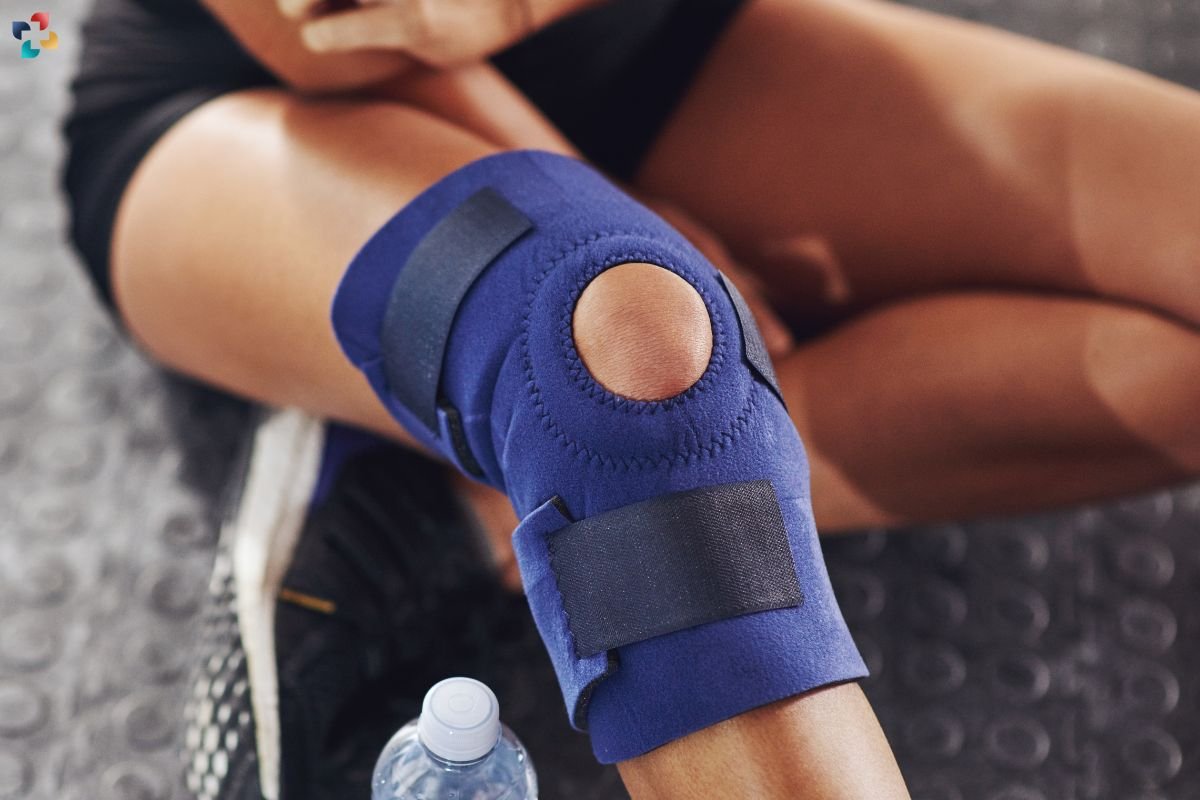
Best Knee Braces for Meniscus Tears: A Comprehensive Guide
Meniscus tears are among the most common knee injuries, especially for athletes and active individuals. These tears can cause significant pain and impede mobility, making effective treatment essential.
15. Foam Rolling
Foam rolling helps release muscle tightness and improve blood flow to the affected area.
How to Do It:
- Sit on the floor with a foam roller under your thighs.
- Roll slowly back and forth, focusing on tight areas.
- Continue for 1-2 minutes.
16. Box Jumps
Box jumps help build explosive strength and improve knee stability.
How to Do It:
- Stand in front of a sturdy box or platform.
- Bend your knees and jump onto the box.
- Step down carefully.
- Repeat 10-15 times.
17. Single-Leg Deadlifts
Single-leg deadlifts strengthen the hamstrings and improve balance.
How to Do It:
- Stand on one leg with a slight bend in the knee.
- Hinge at the hips and lower your torso while extending the opposite leg behind you.
- Return to the starting position.
- Repeat 10-15 times on each leg.
18. Treadmill Walking
Walking on a treadmill helps improve cardiovascular health and knee function.
How to Do It:
- Set the treadmill to a comfortable speed.
- Walk for 15-30 minutes, adjusting the incline as needed.
19. Leg Curls with Stability Ball
This exercise strengthens the hamstrings and engages the core.
How to Do It:
- Lie on your back with your feet on a stability ball.
- Lift your hips off the ground and curl the ball toward you by bending your knees.
- Extend your legs back to the starting position.
- Repeat 10-15 times.
20. Gentle Cycling
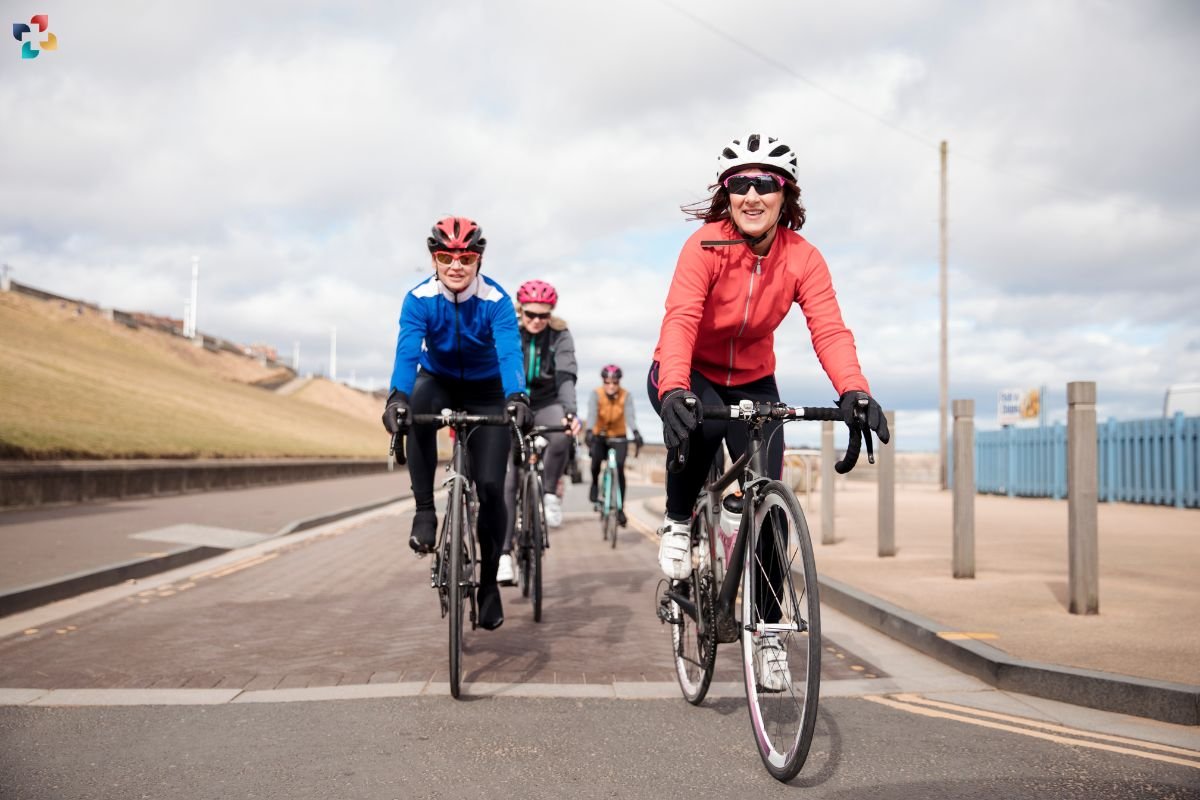
Gentle cycling is an excellent low-impact exercise for improving knee mobility.
How to Do It:
- Use a stationary bike with low resistance.
- Pedal at a comfortable pace for 15-30 minutes.
Tips for Effective Meniscus Tear Rehab
- Consult a Professional: Always consult with a physical therapist or healthcare provider before starting any new exercise regimen.
- Start Slowly: Begin with low-impact exercises and gradually increase intensity as your knee improves.
- Listen to Your Body: Avoid exercises that cause pain or discomfort. Adjust the intensity or modify exercises as needed.
- Stay Consistent: Consistency is key to recovery. Aim to perform these exercises regularly as part of your meniscus tear rehab routine.
- Incorporate Stretching: Include stretching exercises to maintain flexibility and reduce muscle tension.
Conclusion
Meniscus tear rehab requires a structured approach, combining rest, targeted exercises, and professional guidance. By incorporating these 20 exercises into your rehabilitation routine, you can enhance your recovery, restore knee function, and prevent future injuries. Remember to consult with a healthcare provider to tailor your rehab program to your specific needs and progress. With dedication and the right exercises, you’ll be on your way to a stronger, more resilient knee.
By focusing on these meniscus tear rehab exercises and following a consistent rehabilitation plan, you can improve your knee’s strength and functionality, setting the stage for a full and effective recovery.

